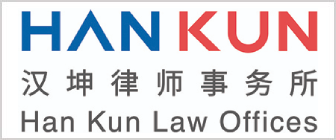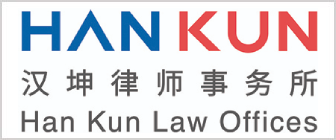争议解决动态︱Litigation Updates
1. 成都国际商事法庭揭牌成立
2022年4月22日,成都国际商事法庭正式成立。这是继苏州国际商事法庭、北京国际商事法庭挂牌成立后,全国第三个在地方设立的国际商事法庭,集中管辖四川省范围内应由中级法院管辖的第一审涉外民商事案件。
成都国际商事法庭是成都市中级人民法院的内设机构,现优配员额法官14名、法官助理7名,组建了三个专业化审判团队。
【链接】https://www.chinanews.com.cn/gn/2022/04-22/9736586.shtml
Chengdu International Commercial Court was established
On April 22, 2022, Chengdu International Commercial Court was officially established. It is the third international commercial court in China after the establishment of the Suzhou International Commercial Court and the Beijing International Commercial Court, and exercises centralized jurisdiction over the first instance proceeding of all foreign-related civil and commercial cases that should have been heard by intermediate people’s courts within Sichuan Province.
The Chengdu International Commercial Court is an internal division of the Chengdu Intermediate People’s Court, and has three professional panels consisting of 14 judges and 7 judicial assistants.
【Link】https://www.chinanews.com.cn/gn/2022/04-22/9736586.shtml
近期案例评析︱Case Brief
1. 野村控股株式会社与日中资本有限公司等申请执行香港特别行政区仲裁裁决
(2020)沪74认港1号
重要性:本案涉及当内地有基于相同案情的关联诉讼时,香港国际仲裁中心仲裁裁决能否在内地获得认可与执行。
【案件简述】
2011年11月,野村控股株式会社作为有限合伙人(以下简称野村株式会社)与日中资本有限公司作为有限合伙人(以下简称日中公司)、上海久有股权投资基金管理合伙企业(有限合伙)作为无限合伙人(以下简称久有基金)签订《有限合伙协议》,共同设立上海久有全兴股权投资合伙企业。2017年12月,野村株式会社以日中公司未实缴出资,久有基金未分配收益为由,根据《有限合伙协议》约定的仲裁条款向香港国际仲裁中心提起仲裁。香港国际仲裁中心作出裁决,包括野村株式会社有权获得投资收益或等值损害赔偿金,日中公司构成违约并应从合伙企业中除名,久有基金应向野村株式会社提供财务数据等。野村株式会社遂向上海金融法院提起本案申请,请求认可和执行上述仲裁裁决。
【主要判决】
上海金融法院裁定认可和执行香港国际仲裁中心于2019年11月26日作出的HKIAC/A17248号终局裁决书(费用除外)。
第一,关于案涉仲裁裁决是否与内地已生效裁判存在冲突。
关于日中公司的合伙人身份,日中公司称上海市第一中级人民法院((2018)沪01民初599号民事裁定书)认定日中公司有权申请法院指定清算人并可以指定清算组成员,与仲裁裁决相悖。但该认定系依据日中公司当时工商登记在册的合伙人身份。日中公司的合伙人身份是法院认定其有权参与清算的前提,而非法院认定的结果。此外,仲裁案审理过程中,日中公司已就该诉讼案件与野村株式会社的仲裁申请相冲突提出抗辩意见,对此仲裁庭已予考量并作出相关阐述。因此,日中公司在被除名之前有权申请指定清算人,与香港国际仲裁中心依据《有限合伙协议》及相关法律规定作出将其除名的仲裁裁决,并不矛盾。
关于野村株式会社的知情权范围,日中公司称上海市徐汇区人民法院在判决((2018)沪0104民初9147号民事判决书)就知情权已经做出决定。但是徐汇区法院在判决中明确指出,该案的请求权基础应限定为以《中华人民共和国合伙企业法》为依据,野村株式会社可以另行通过仲裁的方式实现合伙协议所约定的知情权。两案请求权基础、裁判依据及义务主体均不同,不存在冲突。
第二,关于案涉仲裁裁决是否存在违反内地社会公共利益的情况。上海金融法院认为案涉合伙法律关系为平等主体之间民事法律关系,香港国际仲裁中心就案涉合伙协议所涉纠纷作出的裁决内容限于合同当事人之间,不涉及不特定多数人的利益,对该裁决的执行亦不违反内地外汇管理政策,认可与执行香港仲裁裁决不损害内地社会公共利益。
汉坤点评:本案核心难点在于香港仲裁裁决与内地法院判决案件的当事人相同,案由相关联,存在仲裁裁决与内地法院的判决或即将作出的判决相抵触,从而可能违反内地社会公共利益的问题。上海金融法院经过审理,从请求权基础、裁判依据及义务主体上分析了仲裁裁决与内地判决的区别,认为关联案件不具有同一性。因此,仲裁案件在内地的认可与执行与内地已经或者正在进行的诉讼案件不存在冲突。
本案就《最高人民法院关于内地与香港特别行政区相互执行仲裁裁决的安排》的司法实践提供了有益参考:当事人相同的关联案件并不必然导致仲裁裁决无法获得认可与执行,仍需要从请求权基础、裁判依据等方面综合进行判断。
Nomura Holdings,Inc.v JC Capital Limited Re Recognition and Enforcement of a HKIAC award
(2020) Hu 74 Recog. HK No. 1
Significance: The case concerns the recognition and enforcement of a HKIAC award when there were related parallel proceedings in PRC.
[Summary of Facts]
In November 2011, Nomura Holdings, Inc. as the limited partner (“Nomura”), JC Capital Limited as the limited partner (“JC”) and Shanghai Jiuyou Equity Investment Fund Partnership (L.P.) as the general partner (“Jiuyou”) signed a Limited Partnership Agreement, establishing Shanghai Jiuyou Quanxing Equity Investment Partnership (L.P.) (“Partnership”). In December 2017, Nomura brought an arbitration based on the arbitration clause in the Limited Partnership Agreement alleging that JC failed to contribute capital and Jiuyou did not declare dividend. The HKIAC rendered an arbitration award that, inter alia, Nomura was entitled to the investment returns or equivalent damages; JC was in breach of the Limited Partnership Agreement and should be removed as a partner; and Jiuyou should provide financial disclosure about the Partnership to Nomura (“Award”). Nomura sought recognition and enforcement of the Award at Shanghai Financial Court.
[Key Judgment]
The Shanghai Financial Court held that the Award should be recognized and enforced.
First, whether there is a conflict between the Award and the ruling already in force in the Mainland.
In relation to the issue of JC’s partnership, JC argued that the Award contradicted an effective judgment made by the Shanghai No. 1 Intermediate People’s Court ((2018) Hu 01 Civil First 599), which held that JC was entitled to designate liquidators and can designate members of the liquidation group as it was the registered partner of the Partnership. The Shanghai Financial Court disagreed: JC’s partnership formed the foundation of its participating in the compulsory liquidation but its identity as a partner was not a fact determined by the Shanghai No. 1 Intermediate People’s Court. Further, in the arbitration proceedings, JC had advanced the same argument, which was considered by the HKIAC Arbitration Tribunal. Thus, the fact that JC was allowed to nominate liquidators did not contradict the Award that JC should be removed as a partner.
In relation to the issue of Nomura’s right to information, JC argued that the Shanghai Xuhui Basic People’s Court had rendered an effective judgment on the same issue. The Shanghai Financial Court disagreed and held that the Shanghai Xuhui Basic People’s Court made it clear in its judgement ((2018) Hu 0104 Civil First 9147) that the causes of action in that case was limited to the Partnership Enterprise Law of PRC. Nomura might pursue its right to information as provided in the Limited Partnership Agreement by arbitration. Accordingly, the learned Judges of the Shanghai Financial Court held that the basis of claim, the basis of decisions and the obligors were different and thus there was no conflict.
Second, whether the arbitral award in question was contrary to the public interest. The Shanghai Financial Court held that the legal relationship in the present case was a civil legal relationship between equal parties, and the award made by the HKIAC was limited to the interests of the parties to the contract. The enforcement of the Award did not violate the foreign exchange management policy of the Mainland. Thus, the recognition and enforcement of the Award would not undermine the public interests of Mainland society.
Han Kun Comments: The core difficulty here is that the parties to the Award and the mainland court judgments are the same and the causes are related. Thus, there is possibility that the Award contradicts the Mainland judgments and may violate the public interest. Upon hearing the case, the Shanghai Financial Court analyzed the difference between the Award and the mainland judgments in terms of the basis of the claim, the basis of the decision and the obligors, and held that the related cases were not homogeneous, and therefore, there was no conflict between the recognition and enforcement of the Award and the litigation cases that had been or were being conducted in the mainland.
This case provides a useful reference to the judicial practice of the Arrangement of the Supreme People's Court on Reciprocal Enforcement of Arbitral Awards between the Mainland and the HKSAR in the sense that, connected cases with the same parties involved do not necessarily result in an arbitral award being unable to be recognized and enforced. Parties and attorneys can still explore the differences in multiple aspects such as the basis of claims and legal references.
2. 柯伍陈律师事务所与花世界旅游有限公司申请认可香港特别行政区高等法院判决一案
(2019)闽01认港4号
重要性:本案法院准确适用有关法律规定,认可香港法院对内地当事人作出的缺席判决,入选首届“人民法院涉港澳司法合作优秀成果”二等奖。
【案件简述】
2016年5月,柯伍陈律师事务所与花世界旅游有限公司(以下简称花世界公司)签订聘《委聘书》,约定花世界公司委聘柯伍陈律师事务所向其提供法律服务,但此后花世界公司未依约支付款项。为此,柯伍陈律师事务所于2017年6月30日向香港特别行政区高等法院对花世界公司提起诉讼(案号:2017年第1558号),并于2017年10月9日经香港特别行政区高等法院委托福建省高级人民法院协助送达相应的法律文书。2018年2月26日,香港特别行政区高等法院原讼法庭作出最终判决,判决花世界公司支付柯伍陈律师事务所港币2031767.3元及相应利息。判决生效后,花世界公司依然未履行生效判决确定的法律义务。为此,柯伍陈律师事务根据《最高人民法院关于内地与香港特别行政区法院相互认可和执行当事人协议管辖的民商事案件判决的安排》(以下简称《安排》)规定,申请法院认可香港特别行政区高等法院原讼法庭上述判决。
【主要判决】
福州市中级人民法院经审查认为,(1)《委聘书》约定香港法院对案涉争议有唯一管辖权;(2)根据作出判决法院出具的证明书,香港特别行政区高等法院原讼法庭作出的“2017年第1558号”最终判决于2018年2月26日生效,属于《安排》第二条所指的终审判决;(3)且根据《福建省高级人民法院协助送达文书回复书》,可认定香港法院在审理中进行了合法传唤。基于此,福州中院最终裁定认可香港法院作出的判决。
汉坤点评:内地与香港分属不同法域,两地法院判决不能直接互相认可和执行。根据现行有效的《安排》,在内地法院申请认可香港法院的判决需符合以下条件:(1)争议必须基于当事人之间的民商事合同;(2)当事人以书面形式明确约定香港法院对争议有唯一管辖权;(3)判决仅包括金钱给付内容;(4)判决为终审判决。
本案中,福州中院准确适用《安排》,在认定案涉判决符合上述条件且香港法院在审理过程中已进行合法传唤的情况下,裁定认可香港法院作出的缺席判决。
本案入选最高人民法院组织的首届“人民法院涉港澳司法合作优秀成果”二等奖,对类案裁判具有指导意义,体现了最高人民法院对内地与香港民商事判决相互承认及执行的促进与鼓励。
ONC Lawyers v Flower World Travel Limited Re Recognition of a judgment of the High Court of the Hong Kong SAR
(2019) Min 01 Recog. HK No. 4
Significance: The case concerns recognition of a default judgment rendered by a Hong Kong court against a Mainland defendant, and was awarded the second prize in the first “Outstanding Achievements of the People’s Courts in Judicial Cooperation With Hong Kong and Macau” released by the SPC.
[Summary of Facts]
In May 2016, ONC Lawyers entered into an Engagement Letter with Flower World Travel Limited (“Flower World”), according to which Flower World engaged ONC Lawyers to provide legal services, but subsequently Flower World failed to make payment as agreed. Therefore, ONC Lawyers initiated a proceeding against Flower World before the High Court of the HKSAR on June 30, 2017 (Case No.: No. 1558 of 2017), and the High Court entrusted the Fujian Higher People’s Court to assist in serving court documents to the defendant on October 9, 2017. On February 26, 2018, the Court of First Instance of the High Court of the HKSAR rendered a final judgment, ordering Flower World to pay an amount of HK $2031767.3 and corresponding interest to ONC Lawyers. However, Flower World still failed to fulfill its legal obligations. Therefore, ONC Lawyers applied for recognition of the judgment rendered by the Court of First Instance of the High Court of HKSAR in accordance with the Arrangement of the Supreme People's Court between the Mainland and the HKSAR on Reciprocal Recognition and Enforcement of the Decisions of Civil and Commercial Cases under Consensual Jurisdiction (the “Arrangement”).
[Key Judgment]
Upon review, the Fuzhou Intermediate People’s Court held that (i) the Engagement Letter provides that the Hong Kong court shall have exclusive jurisdiction over the dispute; (ii) according to the certificate issued by Hong Kong court, the judgment “No.1558 of 2017” issued by the Court of First Instance of the High Court of the HKSAR is final and came into force on February 26, 2018, which is a final judgment referred to in Article 2 of the Arrangement; and (iii) according to the Reply of the Fujian Higher People’s Court on Assistance in Service of Court Documents, the Hong Kong court has duly issued summons and served the defendant in the proceeding. Therefore, the Fuzhou Intermediate People’s Court issued a verdict recognizing the judgment made by the Hong Kong court.
Han Kun Comments: Judgments of the courts in the Mainland and Hong Kong cannot be directly recognized and enforced in each other’s jurisdictions. According to the Arrangement that is currently in force, the following conditions should be satisfied for an application for recognition of a judgment rendered by a Hong Kong court with a court in the Mainland: (i) the dispute must be arising from civil or commercial contracts, (ii) the contracting parties must agree in writing that the Hong Kong court shall have exclusive jurisdiction over the dispute; (iii) the judgment only involves payment of money; (iv) the judgment is final.
In this case, the Fuzhou Intermediate People’s Court properly applied the provisions of the Arrangement, and recognized a default judgment rendered by a Hong Kong court where the judgment in dispute fully complied with the above-mentioned conditions and the Hong Kong court has duly issued summons and served the defendant with the assistance of the Mainland court before the hearing.
This case is awarded the second prize in the first “Outstanding Achievements of the People’s Courts in Judicial Cooperation With Hong Kong and Macau” released by the SPC, and is referential for the adjudication of similar cases. The case also reflects the SPC’S promotion and encouragement of the mutual recognition and enforcement of civil and commercial judgments between the Mainland and Hong Kong.



